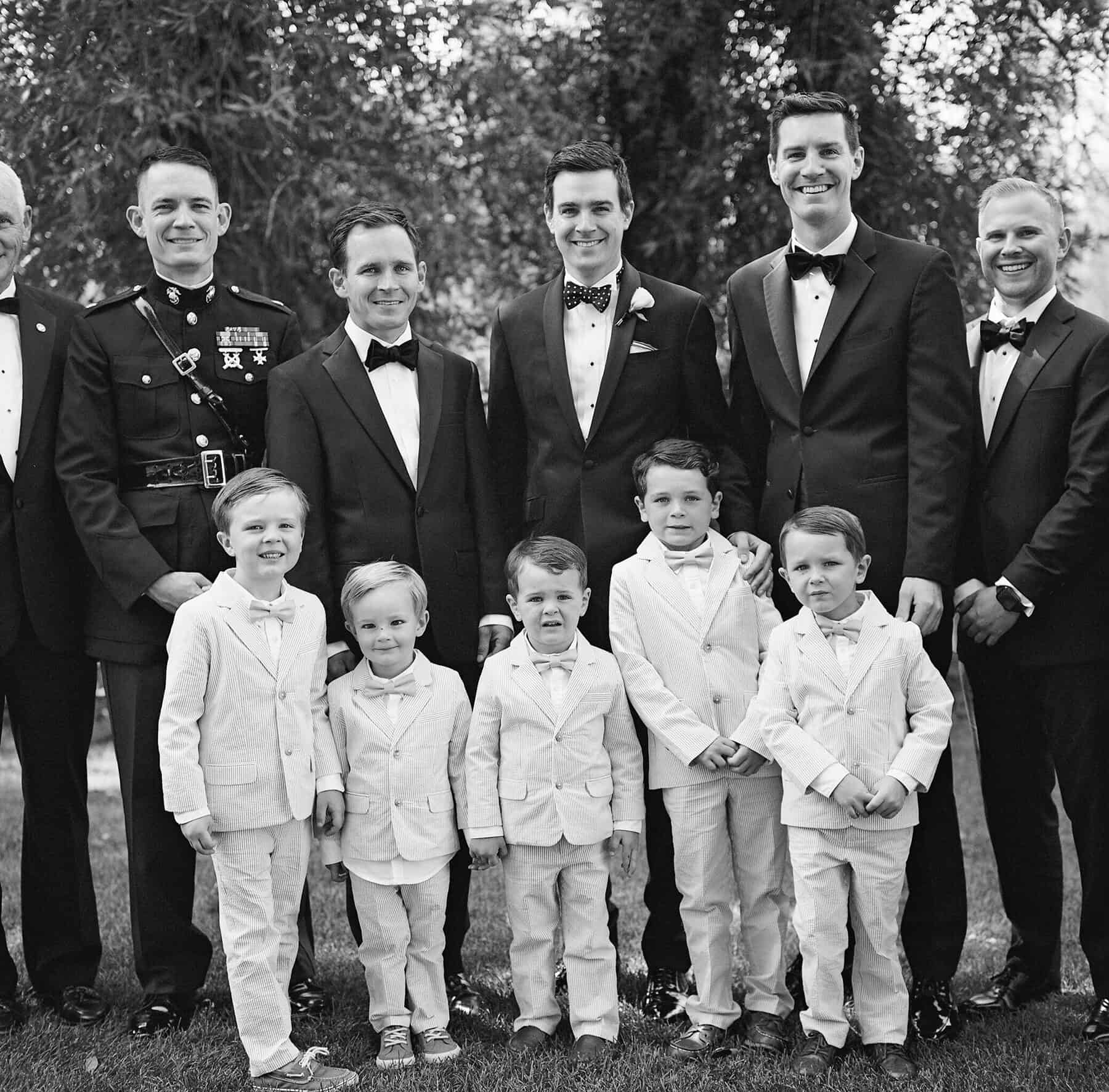Premarital “F” Words
Premarital “F” Words
Finances. Family Planning. Fertility.

Before getting married to my husband, our premarital planning consisted of how many days we’d be snowboarding that winter and how we’d fit it in around our jobs. We discussed where we’d spend the offseason (camping on the beach in Mexico, most likely), and if we needed to upgrade the truck’s tires before making the long drive. Financial planning and, God forbid, kids, weren’t even on our radar as twentysomethings, as we avoided the so-called “hot topics” that mature couples discussed.
Now, I wouldn’t necessarily recommend taking our path, but after 20 years of marriage, two kids, and a house to call our own, thankfully, everything worked out. Yet, with today’s complexities of life, smart couples tend to engage in hot button conversations—concerning finances, family planning, and fertility—long before tying the knot.
“Regardless of what decisions are out there, you want to make them on a united front,” says Laura Santomauro, LMFT, of Jackson Hole Family Solutions. She stresses the need to tackle things with a team approach, so that no one feels like they are doing it alone.

Finances
So, maybe you’re coming to the table with a college loan, and he has some credit card debt. Or, maybe he wants to have separate bank accounts, and you want to combine. And, what about saving for retirement?
Jackson-based Certified Financial Planner, Brendan McDermott says that tackling bad debt when you’re newly engaged or married is crucial. He explains, “You want to get things like personal loans and high interest credit cards off of the books and out of the marriage, so that they don’t serve as big weights to your financial future.”
It’s important to talk about things like if you want to pay off your own debt, or if, as a couple, you want to “throw all the dollars on the table,” no matter whose debt it is.
“These are all great solutions,” McDermott says. “Couples with the most success enter the marriage humbly, so that they can address these items during the period in their lives when they can actually save and get ahead on retirement.”
McDermott points out that there is a different recipe for everyone when it comes to combining finances. Some couples fully combine, some couples partially combine, some couples don’t combine, and some couples do it gradually, as the need arises. He recommends having a conversation with your soon-to-be spouse to see what works best for you, and that can evolve over time, as well.
“Typically, couples open a joint account when there are certain things they want to buy, and it feels like it should be a joint purchase, like the purchase of a house,” he says. “But having a bit of financial independence can be really healthy, too. I’ve seen people go their entire marriage and never have a joint account. They just split things fifty-fifty.”
Lastly, McDermott suggests sitting down with a financial planner soon after marriage to set goals with the most important being retirement savings, an emergency fund, and a down payment on a house.
Above all, he suggests, “Live the lifestyle now that’s going to allow for future purchases. Act like you already own the home you want, and save the money that you would otherwise be putting into the house every month until you reach your down payment. If you get used to doing that now, you’ll be a lot more comfortable later on.”

Family Planning
The family planning discussion can roll pretty smoothly if you’re both on the same page. Still, it’s good to sit down as a couple and discuss your underlying values and motives for even wanting kids, should that be something you’re striving for in the future. Talk about your priorities, your careers, and the timing and spacing of kids, as well as how that will impact your financial future. Then, if one person wants something different than the other, make the space for that and really listen before trying to find common ground.
Santomauro notes that talking about important decisions (like having kids) is all about flexibility. “If my partner has a different position than I, I want to be curious about that. It’s a ‘both-and,’ not an ‘either-or,’” she says. “It takes a lot of emotional maturity to respect my partner’s viewpoints, even if they are different from mine.”
Premarital counseling, or consulting self-help resources like the book Hold me Tight: Seven Conversations for a Lifetime of Love by Dr. Sue Johnson, which focuses on “emotionally-focused therapy” and is recommended by Santomauro, helps couples “understanding how we are hardwired for connections as humans and where we can go off track.”
“Counseling can help because it opens up space for couples to have intentional conversations,” says Santomauro. “You have a guide that can help you organize your feelings, so that your partner can better hear you. The therapist holds an envelope of safety around you and creates a corrective experience that helps move conversations forward.”
Acupuncturist Whitney Fessler, of Grand Teton Acupuncture, finds it shocking how many people don’t discuss their stance on having kids before getting married. And from a health perspective, she views this as a pretty big piece of the pie. She finds it important for people to discuss their “negotiables” before they get married, and then, if they see kids in their future, talk about their overall health habits as a couple.
“Some people think they will get pregnant within their first month of trying,” she says, “They don’t realize it may take months of optimizing their mental and physical health to give them the very best chance at conceiving.”
That might mean cutting back on alcohol, coffee, and processed food. And, in our active Teton culture, maybe even cutting back on exercise, too. She mentions that if one person wants to optimize their health, they should make it a team effort, so that the other person doesn’t get resentful.

Fertility
Sometimes, the decision to have kids is met with unforeseen obstacles that can put an enormous strain on relationships further down the road. While dwelling on the “what if’s” during the throes of engagement bliss is not seemingly romantic, discussing the topic of infertility (and the options available, should this become your reality) cannot be overlooked.
“There are a lot of options [for couples wanting to have children]. So, think about how important it is to you to have your own baby, and if you are willing to negotiate the options,” says Fessler. “These are hard conversations to have because they can break up a relationship.”
Fessler also wants couples to know that just because you’ve been trying for months doesn’t mean it’s not possible for you to have your own kids. Her Chinese Medicine perspective views fertility as a garden.
“You need to nourish the soil, so that you can have a healthy pregnancy,” she says.
She says that diet, stress, and stagnation (stress and dryness cause stagnation) can disrupt the balance of blood flow in the body, leading to complications in conceiving. Her advice to couples wanting to conceive include avoiding raw foods and not overworking yourself (both mentally and physically).
“Visit the doctor and have an overall checkup [before trying to conceive]. Then, if something is wrong that can be treated, you can do it right away,” Fessler says.
Santomauro can’t imagine a topic more difficult for couples than infertility. “It represents a death of desires and wants,” she says. And while you can’t predict what the future may bring, Santomauro urges couples to make sure that their marital bond is really, really strong.
“It’s that secure attachment to each other that’s going to help when you have to tackle the hard stuff,” she says.
